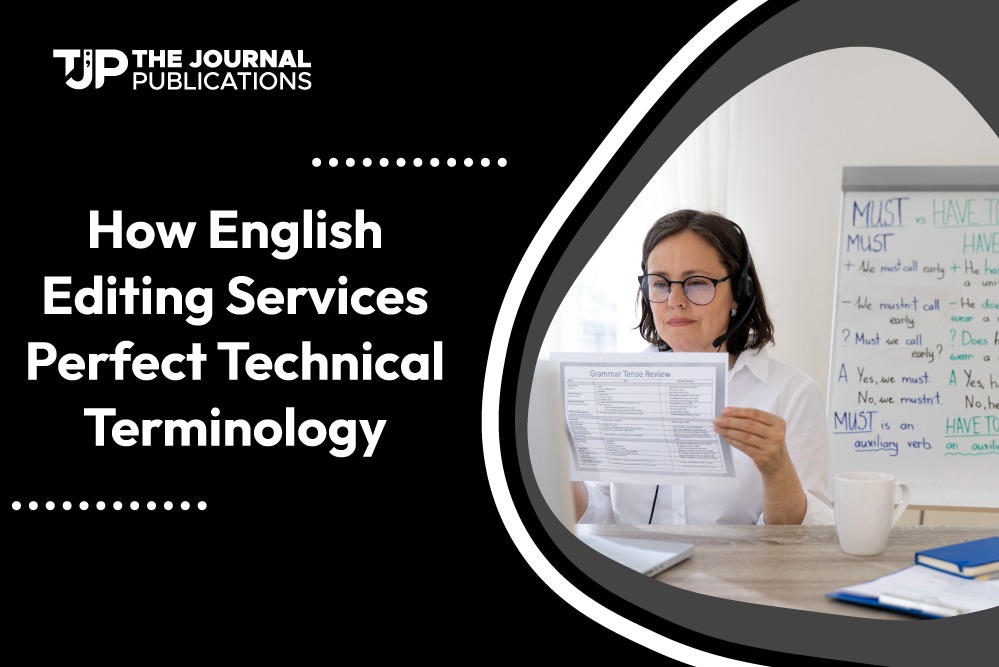Outline
- Opening
- Why Technical Terms Are Important
- Challenges in the Use of Appropriate Technical Terms
- How Editing Services Address Technical Terminology
- Precision in Terms: Benefits to Specialized Fields
- The Role of Editors in Maintaining Consistency
- Professional Editing to Avoid Ambiguity
- Editing and Credibility of a Document
- Ensuring Field-Specific Accuracy for Multilingual Contexts
- Steps Professional Editors Take to Perfect Terminology
- Industries Reaping the Fruits of Precise Technical Editing
- Common Pitfalls in Technical Writing
- Examples of Enhanced Technical Documents through Editing
- How to Choose Premium English Editing Service?
- Close
Opening
In today’s globalized century, strikingly specialized world events call for a language that delivers exactly what is meant. Whether you are looking for a scholarship or your field of English or any other technical field, the clarity of technical documents means the difference between credibility, comprehension, and success. Among these, especially critical for English editing services to make sure all the technical terms are perfect. These services do more than enhancing the readability of a document; they make sure the language sounds right to the expert reader by using discipline-specific vocabulary correctly.
Correctness in technical terminology is related not only to clarity in fields but to precision, professionalism, and reputation in specialized fields. Editing services lend English perfection to technical terminology, converting quite heavy, jargon-filled content into readable material. Let’s look at how editing services are refined in the technical language, and why this process is considered vital for the conveyance of effective communication.
Why Technical Terms Are Important
Technical terminology refers to the language and specific words that emphasize a field, profession, and specific skill. Medical, legal, engineering, and several terms in technological uses, for instance, have to be delivered with precision to ensure that the message is conveyed concerning the accurate delivery of information, instructions, or results. Without using proper technical terms, documents risk being misinterpreted or incorrect, leading to wrong decisions that result in costly mistakes and damage to professional credibility.
Challenges in the Use of Appropriate Technical Terms
Specialized field writing comes with its challenges:
- Complex Vocabulary: Technical vocabulary is complex; even slight errors change the meaning of a statement.
- Language Barriers: Numerous authors find it hard to handle terms at certain usages because English is not their mother language.
- Rapid Rate at Which Terms Alter: In the technology sectors, for instance, terms are frequently replaced; updating the vocabulary in any related documents creates additional work.
Besides, these challenges outline the importance of professional editing in keeping up with any inaccuracy and relevance of data.

How Editing Services Address Technical Terminology
Professional editors, particularly those trained in specific fields, have respect for the sensitivity of technical language. Editors develop language in several ways:
Editors also perform checks for proper usage of terms, known as lexical analysis, against reputable sources and standards.
- Field-Specific Consistency: They ensure terminology aligns with industry standards.
- Expert Editors: Consultations by expert editors are very prevalent to clear ambiguities in terms of usage by utilizing peer insights.
Precision in Terms: Benefits to Specialized Fields
Accurate terminology not only provides clear understanding but also serves to show the greatest authority of the document. Precise terminology in academia, business proposals, and medical reports provides exactly what is intended to reach the targeted audience, thereby lending credibility and effectiveness to the document.
The Role of Editors in Maintaining Consistency
Inconsistencies in terminology confuse a reader and take away from the professionalism of a document. Professional editing services ensure:
- Uniform Terminology Usage: Editors establish a uniform use of terms throughout the document.
- Standardized Language Style: They use words adapted to the field, avoiding any misused and overused jargon
Professional Editing to Avoid Ambiguity
Ambiguity arises in technical documents from the misapplication of terms among other areas and when the definition is not clear. The editing services work towards giving each term a single and clear meaning to enhance the ease of understanding of the document without any chance of misinterpretation.
Editing and Credibility of a Document
When technical terms are conveyed correctly, consistency carries a sense of the writer’s knowledge and credibility. It is a journal article, a legal brief, and a scientific report, but proper editing in itself conveys that the author respects the norms and the expectations for those formats in that discipline.
Ensuring field-specific accuracy for multilingual contexts
This is compounded for international audiences with their language and cultural differences. The specialist of English editing services standardizes terms for clarity, especially for non-native English speakers, so the document is easily understood across languages.
Steps Professional Editors Take to Perfect Terminology
Experienced editors develop a laborious process.
- Research: This, of course, involves the cross-referencing of terminology against trusted sources and literature in the field.
- Industry Consultations: They consult with field experts to help them keep terms up to date.
- Glossary Development: On larger documents, editors develop glossaries to ensure that terminology is defined clearly and that consistency is maintained throughout.
Industries Reaping the Fruits of Precise Technical Editing
The impact brought about by editing is immense across sectors:
- Academic Research: Precision in papers is essential for academic research to bring out complex theories.
- Health and Medicine: Making the wrong usage of any term in the medicinal field brings about misunderstandings, which relates to affecting the patient.
- Engineering and Technology: The technical documents have to be accurate so that the creations are functional and safe.
Common Pitfalls in Technical Writing
Common mistakes edited include:
- Inconsistent Terminology: When synonyms are used to refer to a recurring term in a document, this is considered confusing.
- Misplaced Jargon: Too much or the wrong jargon impresses no one, except probably other specialists in that area.
- Lack of clarity: Poor and imprecise definitions and descriptions are the hallmarks that render complex ideas more difficult to understand.
Examples of Enhanced Technical Documents through Editing
Editing changed jargon-heavy descriptions into clear explanations in a research paper on medicine and related to instructional clarity, it has refined terms in any software manual. These are examples of how added value is created through professional editing services.
How to Choose Premium English Editing Services?
What to look for when choosing an editing service?
- Subject Matter Expertise: Ensure the editors are familiar with terms used within your discipline.
- Reputation and Reviews: Good editing services usually have case studies and positive testimonials.
Select services offering terminology checks, along with style and consistency editing.
Close
Technical terminology requires accuracy, consistency, and precision qualities that professional English editing services are competent to provide. Through refinement of technical vocabulary, editors make sure that their argument is presented, discipline standards are met, and the credibility of the document is upheld. This is a great asset for any professional in a specialized field where technical content is transformed into polished and effective communication.





